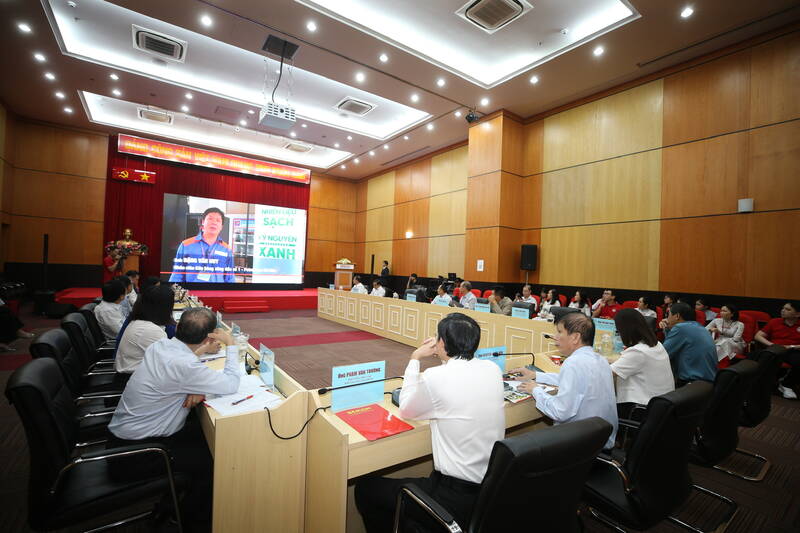Fuel demand in Ho Chi Minh City and the E10 roadmap
In Ho Chi Minh City, the demand for fuel is particularly large. The city consumes about 7,000 m3 of gasoline per day, equivalent to 2.5 million tons/year, serving 8.5 million motorbikes, 1 million cars and many types of transportation vehicles. That volume of consumption creates a significant amount of emissions, which are a direct factor in the decline of air quality and negatively affect people's health. In the context of the increasing number of vehicles, switching to clean fuel becomes urgent.
To respond, the Government has issued many important mechanisms and policies such as the Green Energy Transition Program in Transportation, the roadmap for applying new emission standards, petroleum technical regulations and Circular 50/2025/TT-BCT regulating the mandatory use of E10 gasoline nationwide from June 1, 2026.
On November 25, at the seminar "Using E10 biofuel - Sustainable Development", economic expert, Associate Professor, Dr. Ngo Tri Long - former Director of the Institute for Price Research (Ministry of Finance) - said that E10 gasoline is a "three-in-one" solution: enhancing energy security, promoting agriculture and reducing emissions, contributing to Vietnam's green economic goal.
The current time is considered the "golden time" for E10 to become the most popular type of gasoline. The legal framework is clear, infrastructure is prepared, many localities, including Ho Chi Minh City, have piloted since August.

Dr. Giang Chan Tay - Director of Boi Ngoc Company Limited - commented that E10 is a "energy thinking test", marking the shift from the "energy consumption" model to "energy creation". Reorganizing the domestic Pethanol production chain not only creates stable output for farmers but also improves long-term energy proactiveness.
However, to make the supply chain sustainable, it is necessary to stabilize raw material sources through close linkages between farmers, factories and petroleum businesses, along with synchronous policies on interest rates, technical standards, Pethanol operation norms and reasonable prices.
Deploying, supervising and supplying capacity of E10
According to Mr. Le Thanh Minh - Deputy Director of the Department of Science and Technology of Ho Chi Minh City, in a city with about 14 million people, of which 10 million are private vehicles, the implementation of biofuel is a top priority. The authorities have continuously directed coordination with the Department of Standards - Measurement - Quality to control the entire process: from production, transportation to consumption, ensuring safety and quality. The Ho Chi Minh City Department of Industry and Trade has prepared a roadmap for periodic inspection and collection of samples at gas stations and warehouses.
In terms of experimental capacity, the city has an observation center and key laboratories, but it is necessary to upgrade equipment to effectively control the quality of biofuel. At the same time, universities and research institutes are allowed to order new technology research, improve production of ethanol and proactively source raw materials. Production and trading establishments are also instructed on the storage, storage and use of biofuel according to the correct process.
The petroleum business system is ready for the E10 application roadmap from mid-2026. Petrolimex has completed the infrastructure from port warehouses, pipelines to processing factories, with a network of more than 5,500 affiliated stores and nearly 3,000 dealers, meeting the need for synchronous distribution of E10 nationwide. Blending centers in Hai Phong, Da Nang, Ho Chi Minh City and Can Tho ensure production according to Vietnamese standards and Euro 5 emission requirements.
Vietnam Oil Corporation (PVOIL) also piloted E10 from August 2025 in the North and Central regions, building a restaurant to mix ethanol with RON95 gasoline, and bringing E10 into the retail system.











